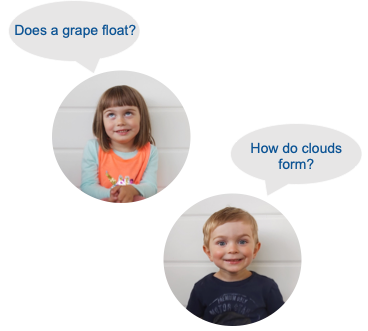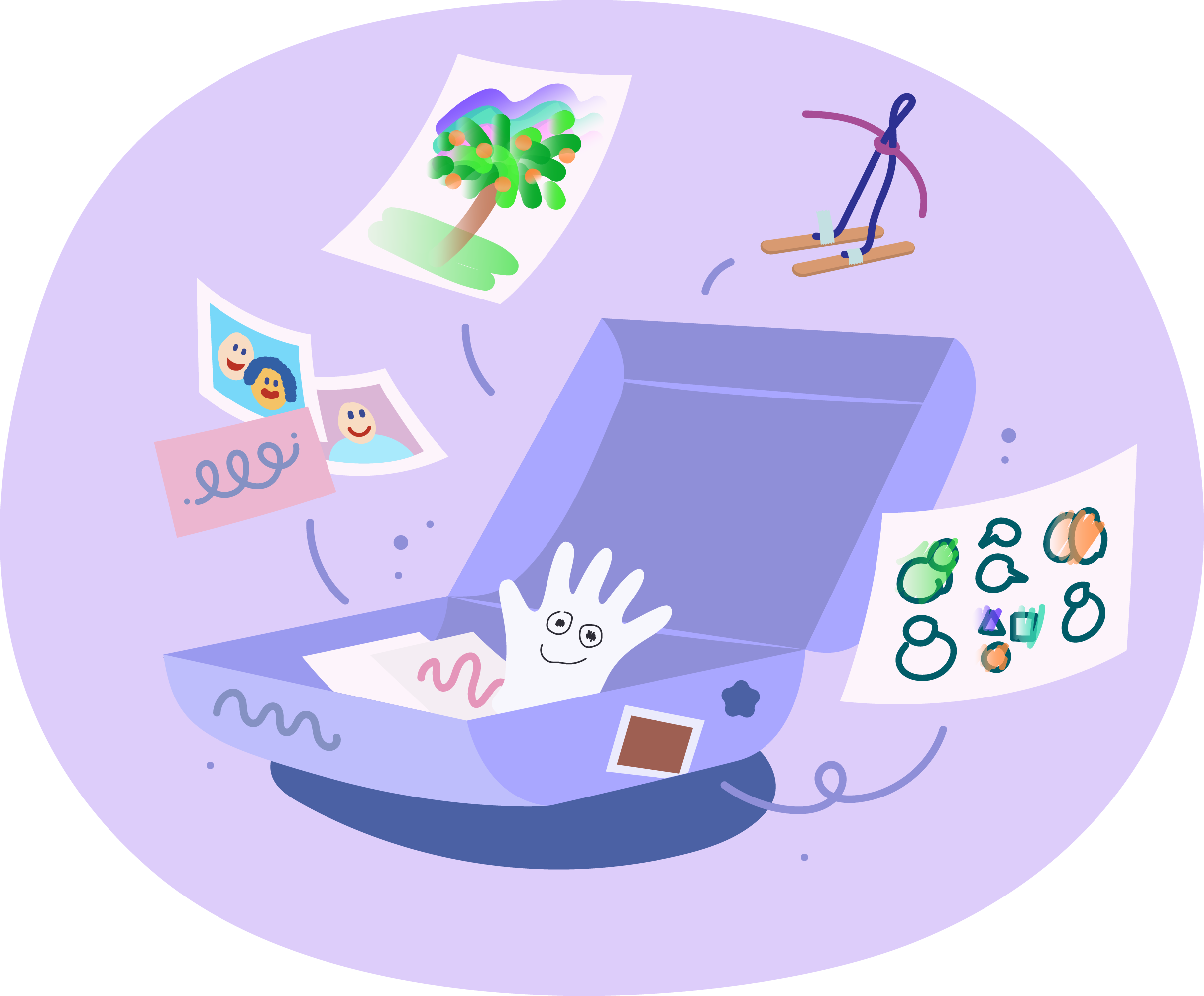The Best Thing to Say When a Child Asks Any Question
There's a very simple way to answer most children's questions that gets them thinking. What do you think it is?

Other Episodes
10-Part Teacher Training Series
In our 10-part series of teacher training, we will walk you through the topics and practicalities including transitions in Kide Lessons, pedagogical tips, questions, assessment, storytelling, children’s agency & preparation, drama approach, group management, adult’s role & home experiment, and scientific arguments behind the Kide-approach.
Video Transcript
Hi there.
Children are Masters of wondering, how many spots does a leopard have? Do ants fart or how long is the color red? Can you smell the Sky? What are those? Children ask so many questions and they do this all the time, but that is great.
We want the children to keep doing this, but sometimes we have to think about what to do with all of these wonderful questions.
So this video is about the question, How do you support a child in asking questions and sharing their thoughts? What are you doing? A child asks a really difficult question and you don't know the answer. Or what do you do if a child already knows the answer to your question? Well, to answer this, we need to look back a bit.
When a child asks a question, any question, an easy one, or a difficult one, the most beneficial question is, what do you think?
Our pedagogy is based on the thought that children are active learners. Active learning comes from the learning philosophy called constructivism. There are three things considered to be at the core of constructivism. One, every child is unique and their thoughts are unique. So we need to think about this when we think about our learning processes. We can't try and fit all the children into the same model. Two, teachers are seen as facilitators who guide the children. They don't dictate, but they support the children in their learning process.
And three, learning is an active process. In this process, we actively search, gather and process the information.
While children are actively involved in the learning process and the teachers they guide, not dictate how the children learn. They do this by asking questions and supporting the child. The children are also encouraged to ask questions and to find answers using all of the equipment at hand. Children are empowered to be scientists who can solve these problems together with the help of their peers and with the help of adults. This is why the children have their white lab coats or badges.
If we want children to be active learners, we need to create a safe environment for trial and error. In this approach, the teacher needs to step back and give the children some time to think and not punish them for their questions and their answers. If a child suggests something that is not scientifically accurate, you can say, Oh, what a great thought. How did you come to this conclusion? After that, you can ask questions to guide the child to notice the things that are most important to solve the mystery.
Example: You are doing a floating experiment with children, so you have a bowl of water and different toys and objects on the table. You put the object in the water and see what happens. A child might be looking at the floating objects and seeing there might be something in the color here. They're thinking at all the yellow things float. Well, this might be true in this particular case, but we don't want the child to generalize this. So what we can do is that we can have these guiding questions. First, we can say, Oh, what a great observation. Do you think there's something else here? Can you see some other color that is also floating?
For example, the child might notice that there is also a blue object that is floating. And you can say, What a great observation! Good. Do you think there could be something in the size or in the shape of the object, too? Through these guiding questions, we have helped the child go further in their thinking process. We don't want to punish them for the wrong answer, because if we do, then shame comes into the picture and it has been shown that shame does not help in the learning process.
What do you do if a child asks a very difficult question? Imagine this situation. You are giving a lesson, and little Matt is asking you a very difficult question that you don't know the answer to. What to do? Well, teachers are under huge pressure to know everything, and parents also sometimes expect this. But the truth is, we don't need to know everything and we never do and we never will. And that is okay. The question here is, what really is the role of the teacher? And how do we explain this to parents? Is the role of the teacher to give the right answers, or is it the role to really help the children to learn? When a child asks a question, any question, an easy one, or a difficult one, the most beneficial question is, what do you think? When we are in a group of children, there's always at least someone who has at least some preliminary idea on what the right answer might be.
And if we do it like this, the children have the idea of we can do this together. And by these sorts of questions, we can have some idea about the children's learning process. How do they actually learn? And we can help the children to think about these things as something they had really achieved together. This, of course, doesn't mean that you can't sometimes skip the answers or fill in the blanks when the children are asking. We don't have to put a lot of pressure to the situation by waiting for the children to give all of the answers.
We can and should give the children a helping hand. But first, we need to know how they're thinking. We should know what they already know so we can support them in their learning. It's more about changing the viewpoint here in Kide lessons, the children are there to learn, but the teachers are not there to pour this information into the children's heads, but to really help the children to think.
What if a child already knows the answer? Well, this can also be a tricky one. Imagine a situation where you're giving a lesson and the lesson starts with a problem that arrives from Supraland. Let's say we have a letter from Kelvin and he has a question about the rain. At this point, Sophia ends up giving a Super accurate 50-minute monologue about the situation and how rain is formed with all of the details like she's reading is straight from the dictionary. What to do at this point? Well, when a child knows the answer, there are a lot of things you can do because of many approaches.
But the first and the most important thing is not to kill the child's enthusiasm by putting her down by saying, Well, okay, you know the answer to this problem. Then there's nothing for you here. We can give them more challenges during the lesson by challenging them to use the equipment at hand and to really validate the answer they have given. Or we can tell them that they can help their peers to find out how to really solve the problem. Or we can maybe give them a bit more difficult tasks and approach the scientific phenomena with them and maybe explain to them a bit further. The most important thing about learning, it's not about finding the right answers, but the process of learning.
I have a challenging but exciting task for you. I challenge you now to think about how we will support children to ask questions during the lesson and write this thing down for you before the lesson starts. First of all, how will you create a situation that is safe for trial and error? Secondly, what sort of supportive questions will you ask to help the scientists find the right answers? And three, how will you challenge the quickwitted scientist? Now enjoy the lesson and see you soon.
Start your free trial of Kide Science to get story-based lesson plans for teachers.
Related articles
We look at the learning process because that's more beneficial for the child. There is no huge...
In the beginning of the story, the child runs in and go straight to the new interesting toy. Is...
We use stories to set the research problem for the whole lesson and to awaken any previous...


